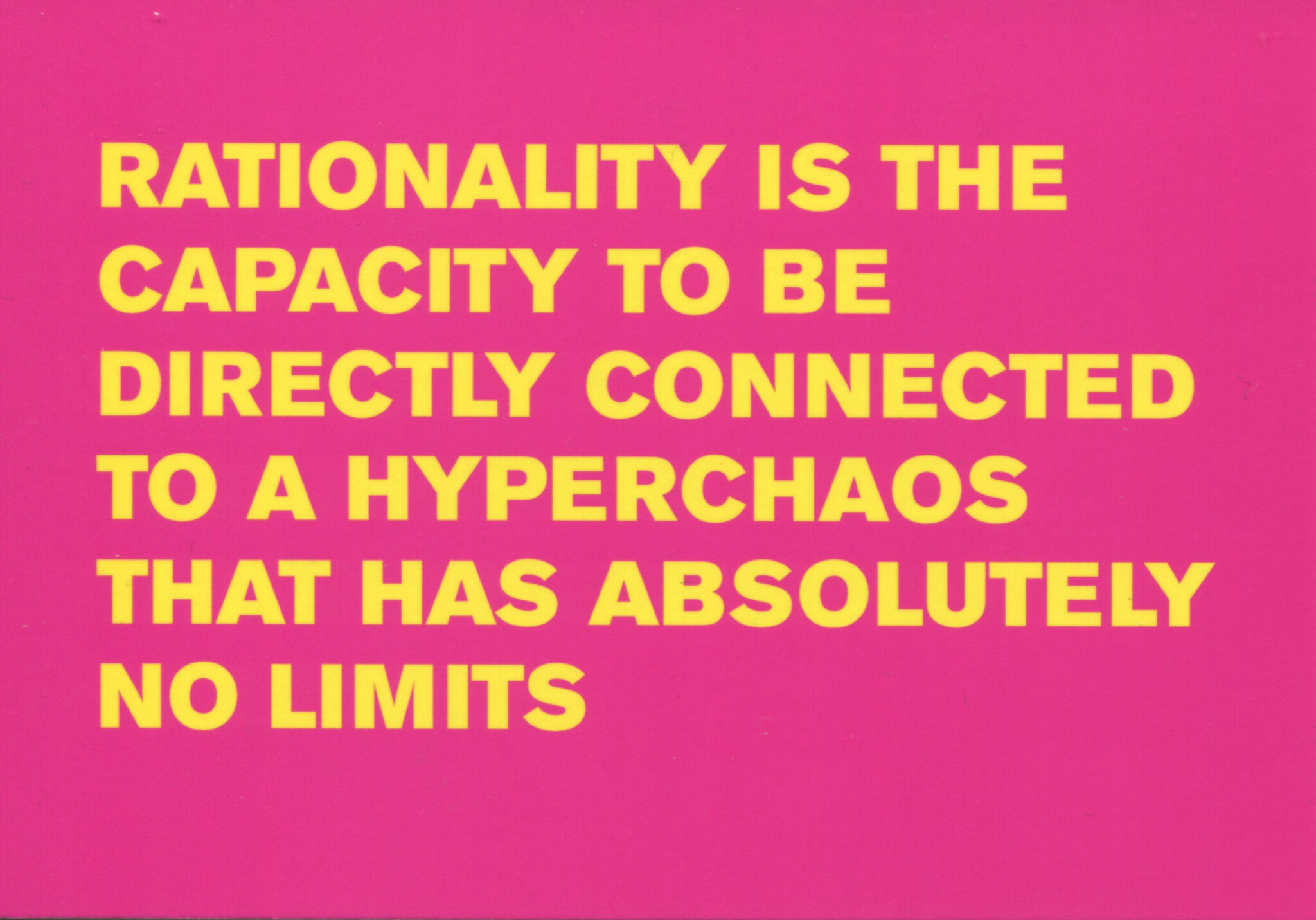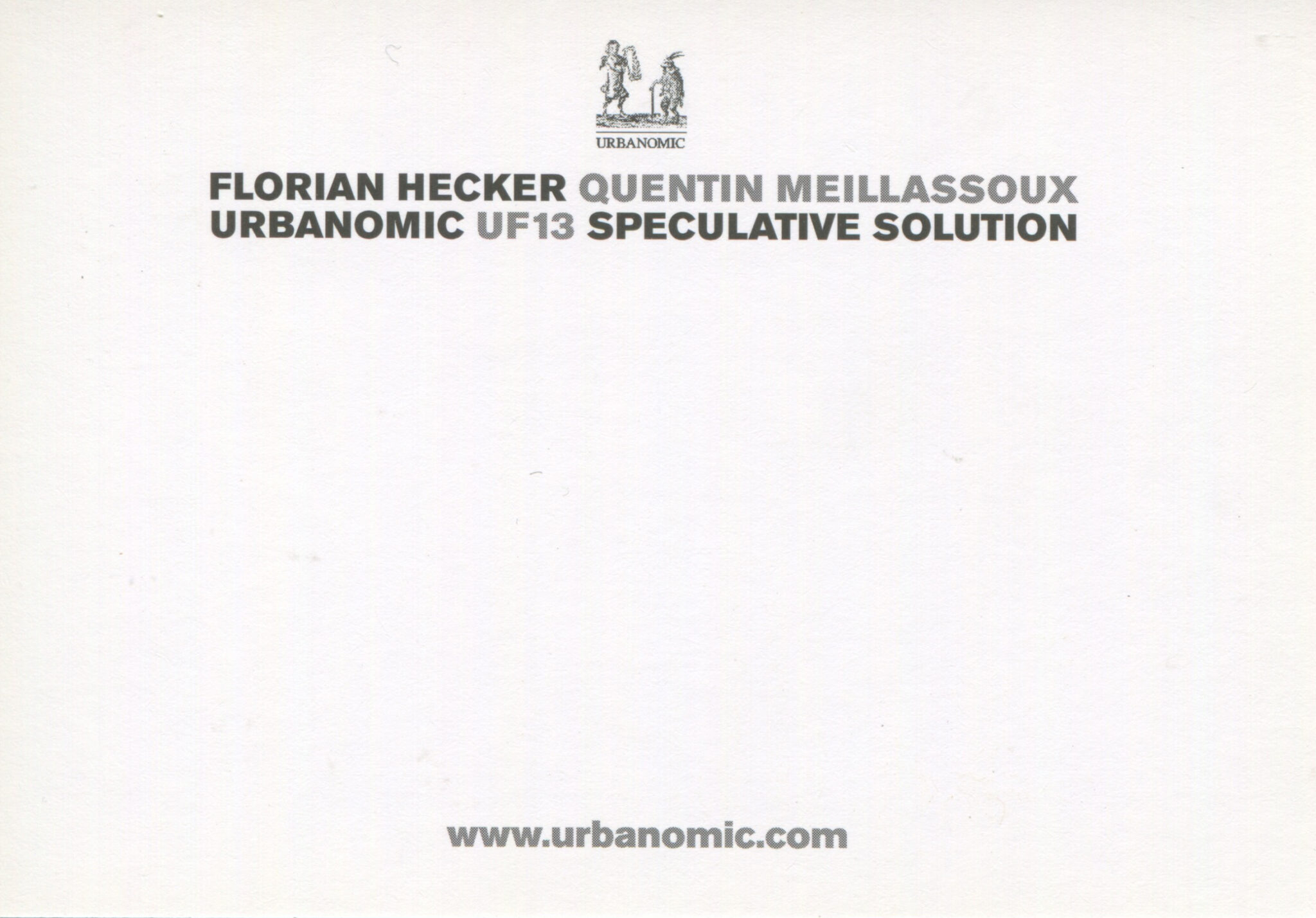Speculative Solution
Speculative Solution
A multi-speaker, electronic, spacious and spatial performance from Florian Hecker.
ReadWhat we wrote at the time: Who: Purveyor of precise, dense, compact, ruthless computer noise music, often focused on how sound creates/ changes space and how space changes/ creates sound. 1
What: A multi-speaker, electronic, spacious and spatial performance to fill all of Tramway 1: hard, challenging, alien sounding – exactly what an absolute computer music should be.
Why: Odd as it may seem, we can listen to our own ears, as well as to space. Listening to ourselves listening is both a weird phenomenon and a kind of existential conundrum – which spaces are physical, and which are only perceived; what is the link between thought and the world? Speculative Solution 2 uses the ideas of hyper-chaos, thought and it’s relation to the world proposed by one of the most exciting philosophical books of the last 5 years 3 to create a music in which there is no such thing as cause and effect; it turns ideas into a physical, spatial, (at times brutal, at others quite affecting), experience.
- As well as being some kind of Iannis Xenakis with beefed up computing power, he’s also a burgeoning art world star working with the likes of Carsten Höller and Cerith Wyn Evans
- Originally commissioned by Urbanomic, editors/ publishers of the most exhilarating journal of radical philosophy in Europe – Collapse. Robin MacKay from Urbanomic will be at the festival to chat with us, and you, about Hecker’s work.
- Quentin Meillassoux’s After Finitude which, in suggesting that ‘we can think what there must be when there is no thought’ attempts to throw out 300 years of Kantian tomfoolery and self aggrandisement (which loftily presupposes that ‘humans cannot exist without the world nor the world without humans’). Your favourite wild-eyed philosopher/ clown Slavoj Zizek says – ‘Rarely do we encounter a book which not only meets the highest standards of thinking, but sets up itself new standards, transforming the entire field into which it intervenes. Quentin Meillassoux does exactly this.'
Documentation

▴ Credit: Alex Woodward
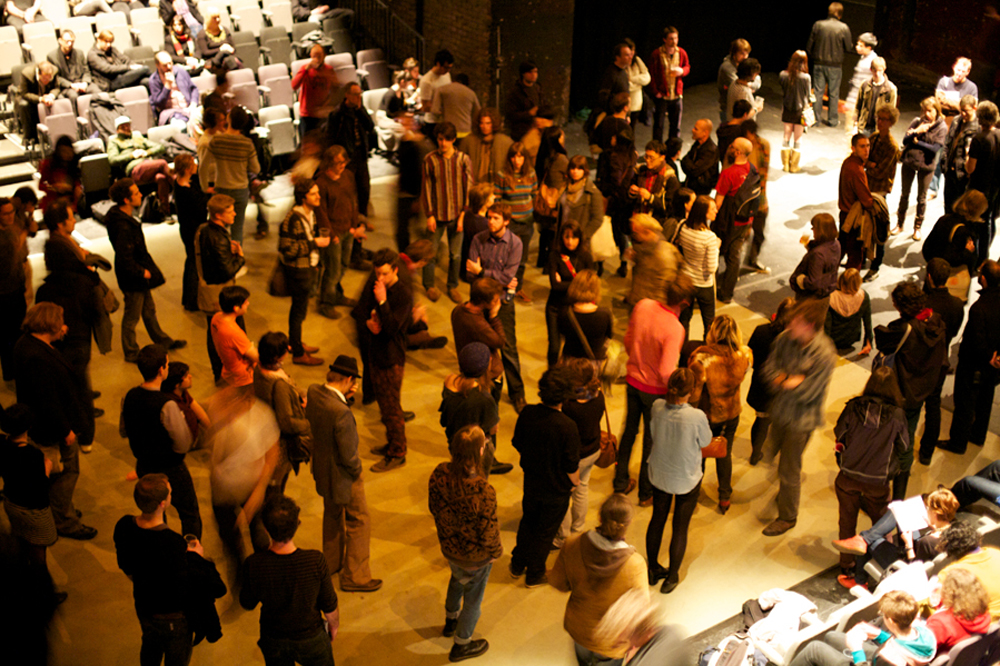
▴ Credit: Alex Woodward
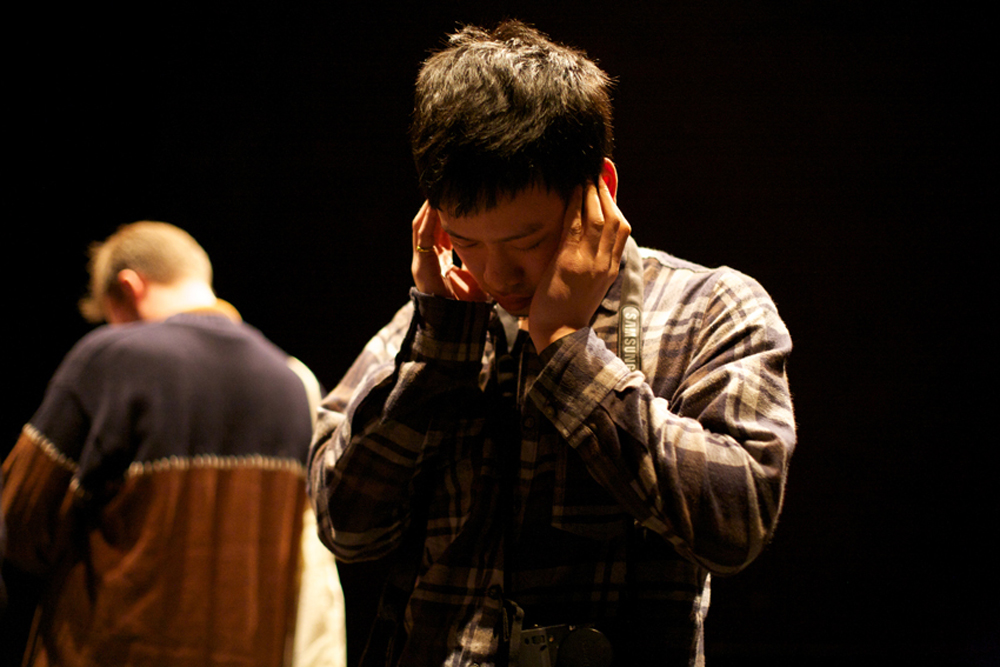
▴ Credit: Alex Woodward
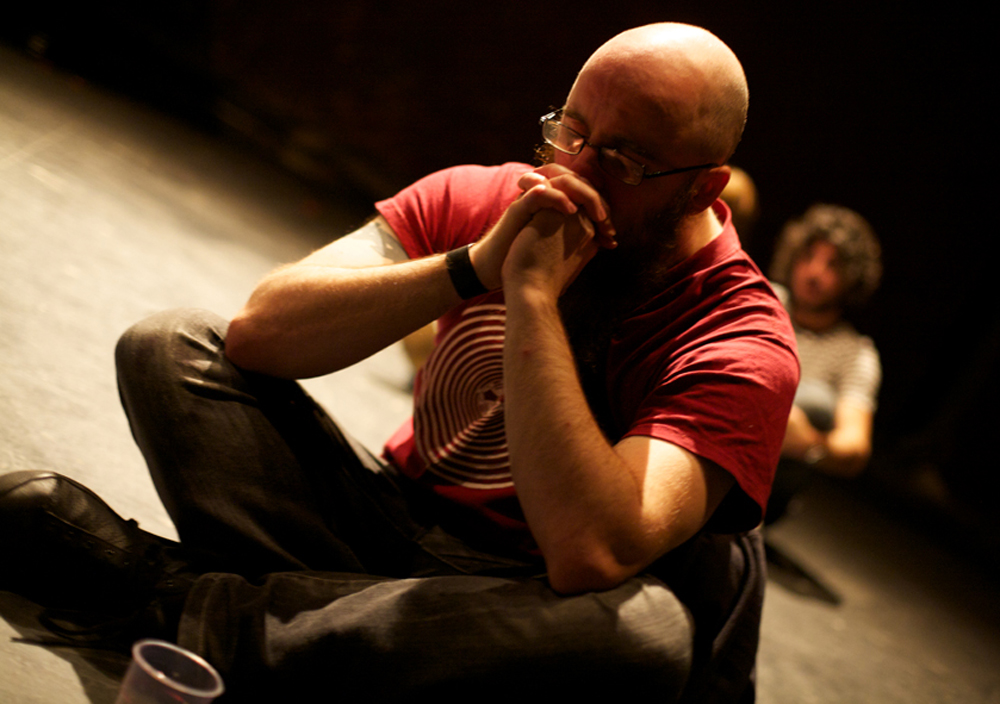
▴ Credit: Alex Woodward
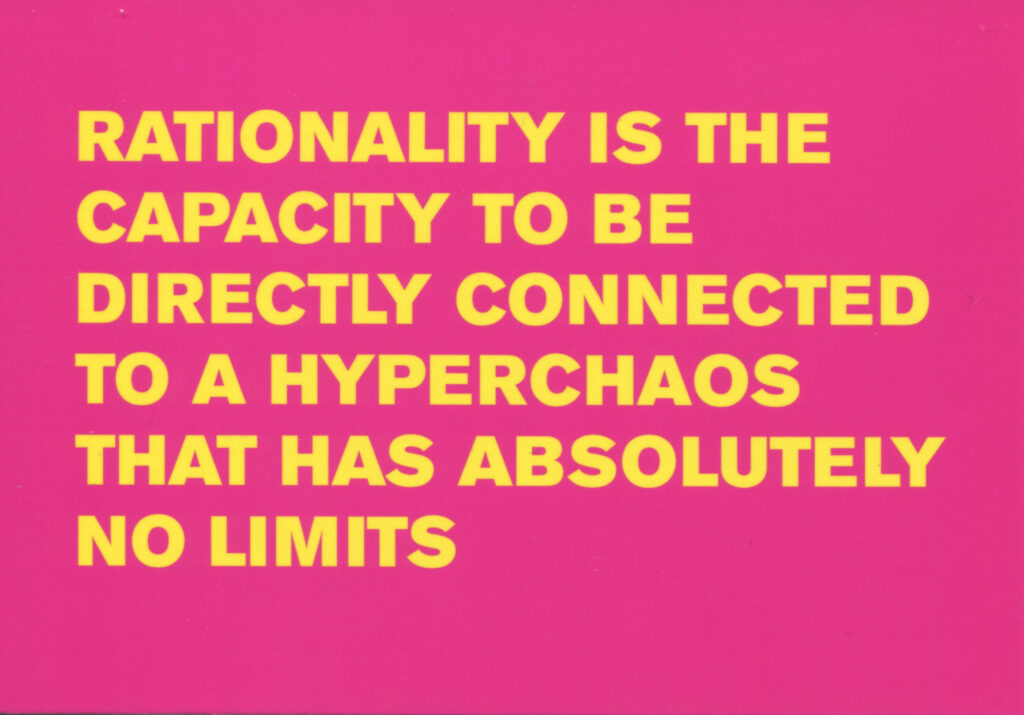
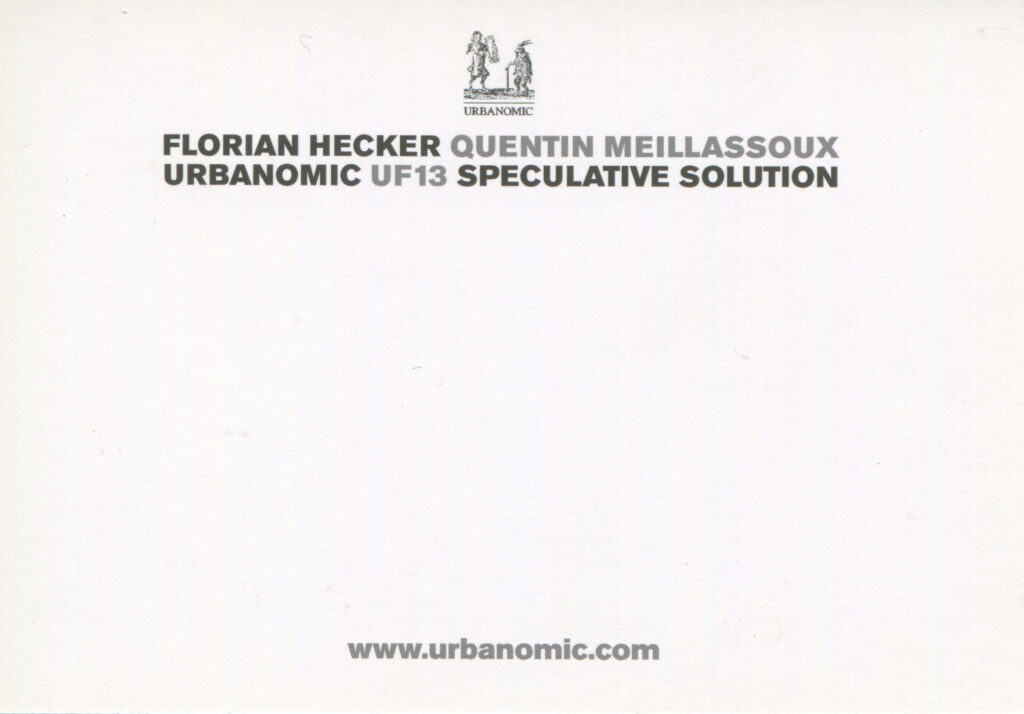
Artists

